A parent’s dilemma: Should your four-year-old start Prep?
IT’S the dilemma plaguing the parents of mostly four-year-old children born between January and April in 2011. Do you send them to school this year or wait until next?
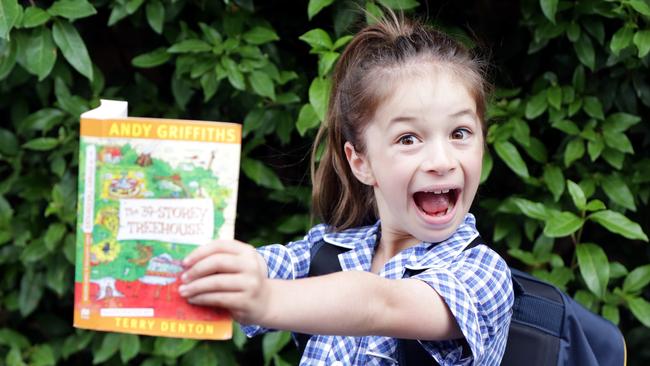
VIC News
Don't miss out on the headlines from VIC News. Followed categories will be added to My News.
AS IF parents don’t already have enough to worry about. Many whose children were born between January and April are agonising over when to send them to school.
Younger children are often held back for a year so those born near the cut-off date can have classmates up to 18 months older. Even if they are school-ready, some parents fear being the youngest will disadvantage them.
It is a very modern dilemma. When today’s parents started school almost everyone went, including some who didn’t turn five until June.
Victorian preps must now turn five by April 30. Parents and teachers consider their “readiness” based on intellectual, physical and social-emotional maturity, combined with stimulation and challenges they experienced in preschool.
The number of children starting government primary schools later has remained fairly steady, with those aged six and over on April 30 in the year they start decreasing from 21 per cent in 2008 to 16.2 per cent in 2015.
Only 0.1 per cent are still four on April 30.
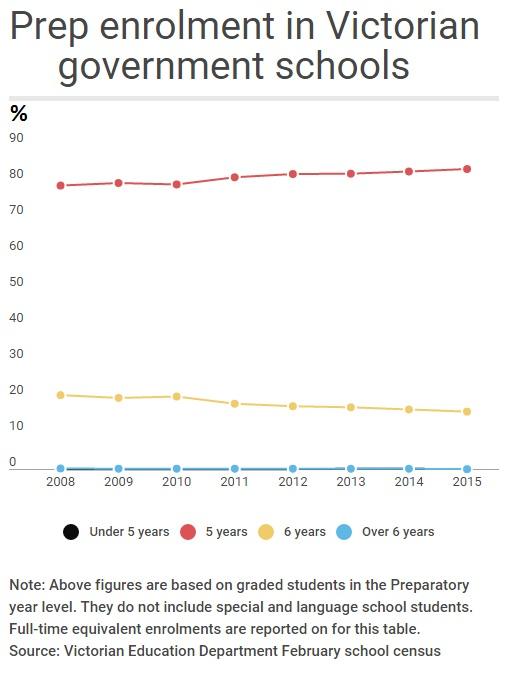
Parents usually hold children back due to concerns about emotional maturity, anxiety, socialisation or attention span. Others don’t want their child to be the youngest, or hope being older will give them more confidence and a better chance to be a leader.
But some experts say these fears are usually misplaced and all children should start in their correct year.
Deakin University adjunct professor and education psychologist Helen McGrath has investigated the issue with colleague Professor Toni Noble for projects including their BounceBack! school resilience program and the Federal Government’s Safe Schools Hub.
McGrath says research shows that while older students have slightly higher achievement levels and less negative teacher feedback in the first two years, these advantages soon disappear as attention and persistence skills stabilise at age six to eight.
“Many younger children have had stimulating experiences and challenges and responded by becoming more mature,” she says.
“Schools are also expected to be ready to respond to the needs of a diverse range of young children.”
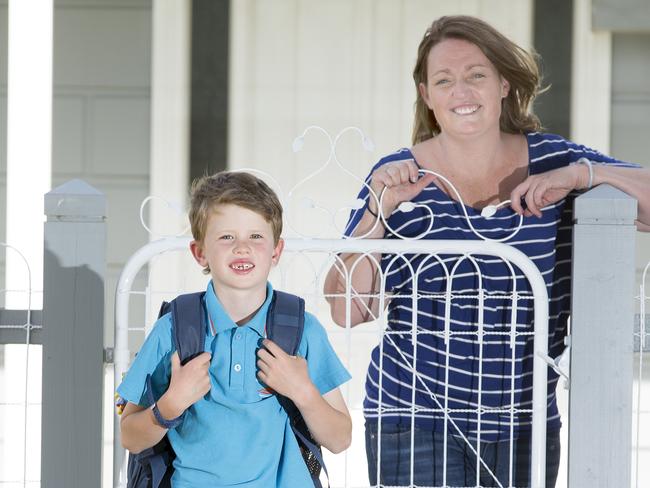
McGrath says those most likely to wait are boys, children short or small for their age, girls who appear shy and children whose parents are well educated or have relatively high incomes.
She believes those who agonise over the decision could be wasting their time, as several studies have found parent and teacher school readiness predictions relatively unreliable.
“Many of your child’s behaviours are more likely to be about ‘who they are’ and may not be reliable signs of their readiness for school,” McGrath says.
The most important readiness predictor identified in research by University of Melbourne psychology professor Margot Prior was attending a kindergarten that emphasised language and literacy skills.
Play and socialisation also played a role.
“Most children with average to high academic ability but poor social skills will still achieve well,” McGrath says.
“Similarly, most children with average ability and good social skills still achieve well.”
However, others strongly believe that holding children back can have long-term benefits.
As an April baby, Somerville kindergarten teacher Amy Langley started school young. She coped well early, but ended up dropping out and returning to study later. Langley did a thesis on school readiness with Prep teachers at 10 schools and found those who started older fared better in prep.
Now a mother of three, Langley also found the academic side less important than social skills.
“What may let younger kids down is the lack of social and emotional maturity needed for the transition to school,” she says.
“Not being able to cope can make them feel very insecure, which can in turn impact on their ability to learn”.
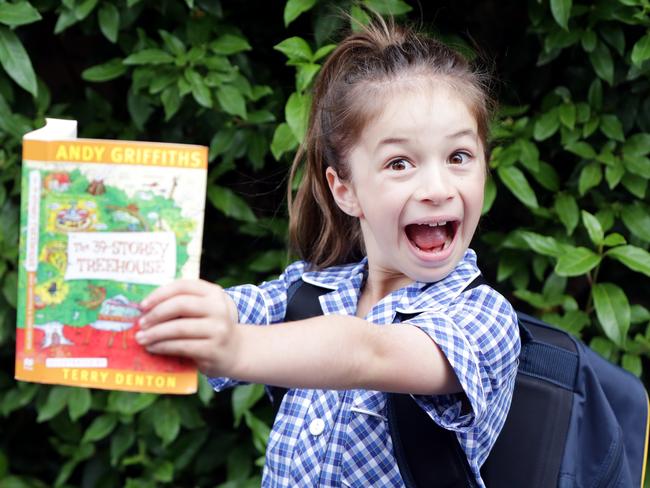
Langley’s oldest child, Paige, 12, was born in February so started school older.
She is happy with the decision. “There really isn’t a lot … that can go wrong if they’re a bit older, but there’s lots of things that can go wrong if they’re younger,” Langley says.
Education consultant and Early Life Foundations founder Kathy Walker agrees. She tells parents there is no hurry in starting school and wants a national rule requiring all children to be five by December 31 before their prep year.
Walker says research may indicate similar long-term academic results in younger and older students, but the entire school experience should be considered as the “quality of the journey” is just as important.
When she assesses school readiness, Walker does not ask a child’s age before investigating their emotion self-regulation, self-initiation, confidence, independence, self-help skills, communication, awareness of and interest in others, concentration, adaptability and flexibility.
“We just want to assess a child and see where they’re at,” she says. “That’s why it’s ‘readiness’, not necessarily an age thing.”
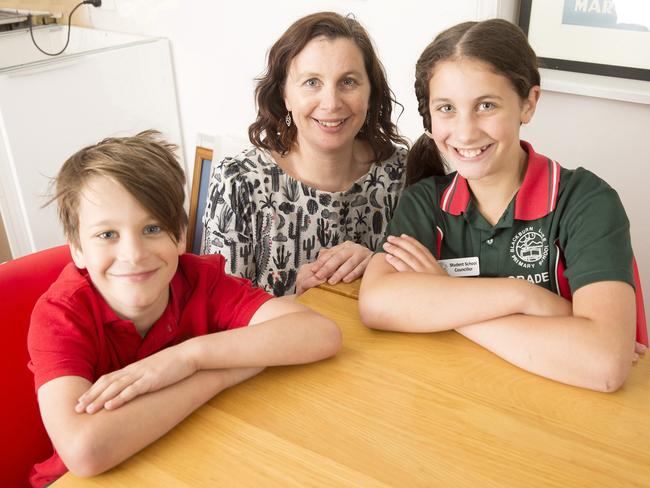
Walker, whose book Ready, Set, Go? covers the issue, says most other countries start children at least a year later than we do so they are more emotionally mature.
“Every single prep teacher in the world will tell you that they can spot a child who’s not ready within two days,” she says.
It can be confusing for parents. An eastern suburbs mother with a working-class background who studied school readiness for a university thesis didn’t realise it was an issue until she heard other parents discussing it.
She believes delayed entry could be more of a middle-class phenomenon, as those in lower socio-economic areas may not be able to afford an extra year of childcare or preschool.
This mother started her second and third children young and is happy with the decision, especially for her daughter, who was “born an old soul”. She says whatever parents decide, it is important to remember all children are individuals.
The Victorian Minister for Families and Children, Jenny Mikakos, says a great deal of effort and planning goes into kindergarten programs to ensure children are emotionally and socially equipped to engage at school.
“Similarly, most schools do a great job in supporting children and families as they start school,” she says.
Mikakos says 15 hours of high-quality four-year-old kindergarten helps children to prepare for school.
“It’s only natural for parents and carers to question how their child will cope with the new challenges and opportunities of school,” she says.
“I’d encourage anyone with concerns to speak to their child’s kindergarten teacher and the prospective school.”


